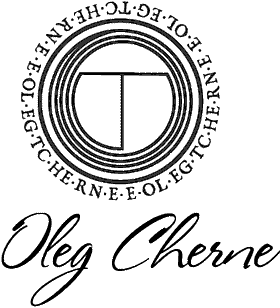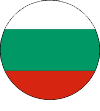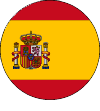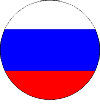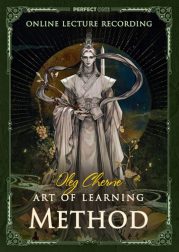Starting Point
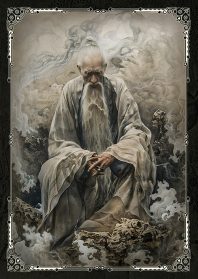
The art of learning is a process that must be mastered over time. A fundamental concept in this art is mastering tools like the compass and ruler. But what does this really mean?
When someone starts learning, the first step isn’t to act mindlessly but to consider how and where to begin. This approach requires developing a mindful practice where consciousness is actively engaged, and reflection on actions becomes a habit. It’s essential to maintain an awareness of the importance of learning skills at every developmental stage.
Our approach to learning often stems from our personal beliefs or experiences. Usually, something or someone inspires us to explore new knowledge. Often, it is our spirit or personal drive that nudges us toward practical engagement. However, truly measuring success in learning requires connecting our consciousness with our inner spirit.
It’s crucial to remember that no one can offer precise advice without observing your personal learning journey. While it’s easy to suggest focusing on particular areas, such advice often remains a general wish and is subject to personal interpretation. Moreover, without consistency in practice, one’s learning is influenced more by everyday routines than by genuine progress, whether these be mundane tasks or financial constraints.
Today’s challenge is the widespread lack of accountability for one’s words and actions. This reality brings us to the fundamental question of how to start: the key lies in fostering attentiveness to how we listen, speak, implement tasks, and set goals. Genuine development begins only when our actions and experiences converge towards a deep understanding of our involvement in the learning process. Simply directing people to engage in activities is ineffective; instead, we must guide them to introspect first.
I have observed a significant decline in teaching quality, which certainly has its underlying reasons. Modern education often resembles a mere transaction between instructor and student, where many educators focus more on service than on genuine teaching. This shift disrupts both the method and rhythm of delivering educational content, causing a disorientation where learners face a barrage of identical terms and explanations that lead more to misunderstanding than to clarity.
Even true masters and teachers face tough conditions today, struggling with how to continue their traditions amid such constraints and competition. The existing masters are split between those who have become exorbitantly priced and inaccessible, and those who have limited their teachings to a small group of students to preserve their knowledge.
The market today offers everything and anything, leaving individuals confused about how to make choices that align with their needs. Often, people opt for what appears easier and cheaper—or even free. However, engaging in learning is not about paying others; it’s an investment in oneself. The true value of knowledge cannot and should not be quantified.
In the tradition of learning, there is a notion of ‘family,’ signifying a deep and almost vanished commitment. Learners today are forced to ‘monetize’ their knowledge, understanding its value beyond mere participation in exercises. This reality underscores the need for a profound personal and collective commitment to learning and development.
The Art of Learning
When we discuss starting points, mastering the art of learning and analysis is vital. It’s important to recognize that the value of our learning comes not only from what we receive but also from how it is presented. This concept inherently involves a methodology—a systematic approach that fosters growth rather than just a disjointed collection of exercises.
Practice should be viewed as a construction set, something that we need to learn how to assemble properly. Firstly, awareness is key—we need to cultivate focus and concentration in every action. Secondly, maintaining a rhythm is crucial; it’s about creating a technological sequence of actions that facilitate development. Thirdly, we need a balanced combination of actions to avoid getting stuck on one aspect and neglecting others. Essentially, this involves balancing active and meditative practices, with each affecting the body, energy, and consciousness in different ways.
One of the largest challenges we face is acknowledging our prenatal nature, which can halt our progress at certain stages. Understanding our inherent nature and potential can take decades because it requires developing specific methods to unlock insights into our spirit and nature.
At the outset, our consciousness lacks the depth of penetration needed for profound development. True development is about overcoming our flaws, not indulging them. Regardless of circumstances, we must work on enhancing our mental capabilities. Often, even those with favorable prenatal qualities encounter limits that seem insurmountable. Real development begins when you immerse yourself in the process of development.
This developmental process necessitates constant attention to growth, self-harmonization, and a well-structured approach. We must understand that possessing a coherent internal architecture is crucial. Furthermore, rhythm is essential and perhaps the most complex concept to grasp because it transcends conventional notions of time. To truly progress, we must break free from traditional temporal constraints and live within the process.
This doesn’t imply a non-stop engagement from dawn to dusk. Instead, it means each of our actions should be deliberate and mindful. If our actions are out of sync, it signifies that we aren’t truly engaging, highlighting the fundamental importance of rhythmic harmony. Achieving a harmonious state changes the temporal dynamics of our existence, allowing us to connect with the spirit’s nature, marking the true beginning of development. Thus, genuine progress starts not on a whim but through achieving consistent inner stability—even during conversations, maintaining this constancy is essential.
Reflection is crucial. Hastily finding answers before fully understanding the questions or focusing on them is risky—it reflects a reflexive rather than a reflective mindset. Modern education often relies on a functional rather than a thoughtful approach, shifting towards practices where individuals struggle to find personal relevance or understand their needs. When someone fails to grasp the concept of ‘need’ and the essence of necessity, they default to instinctual desires.
Everyone starting on this path wants quick results, but true development is an ongoing process. Chasing after specific outcomes is futile because the real value lies in the journey itself. Life is a continuous process, and distinguishing between the process and the outcome becomes irrelevant once we embrace this mindset.
It’s vital to remain open to learning, requiring a strength that allows for openness. Understanding respect for knowledge, and even the concept of space, demands that we first develop our internal space to appreciate the external world.
Moreover, we must come to terms with our inherent limitations and gradually distance ourselves from them, as they are not easily discarded. Until a person achieves harmony, they cannot effectively manage their ego, which varies in strength among individuals. To genuinely navigate this, one must learn to increase their energy frequency, returning us to the concept of rhythm.
Regular engagement prevents our energy levels from dropping. Conversely, disengagement leads to a decline controlled by what we refer to as the ego, creating significant obstacles. We must accept ourselves as we are and diligently monitor our actions. Handling the ego, like any behavior, depends significantly on our ability to analyze and correct mistakes, which requires sustained concentration.
Observing our lives, we often find repetitive patterns because we haven’t overcome certain challenges. Knowing what to do in difficult times is essential. Not knowing represents a profound struggle. Therefore, practice should nourish, improve, and ultimately satisfy us.
